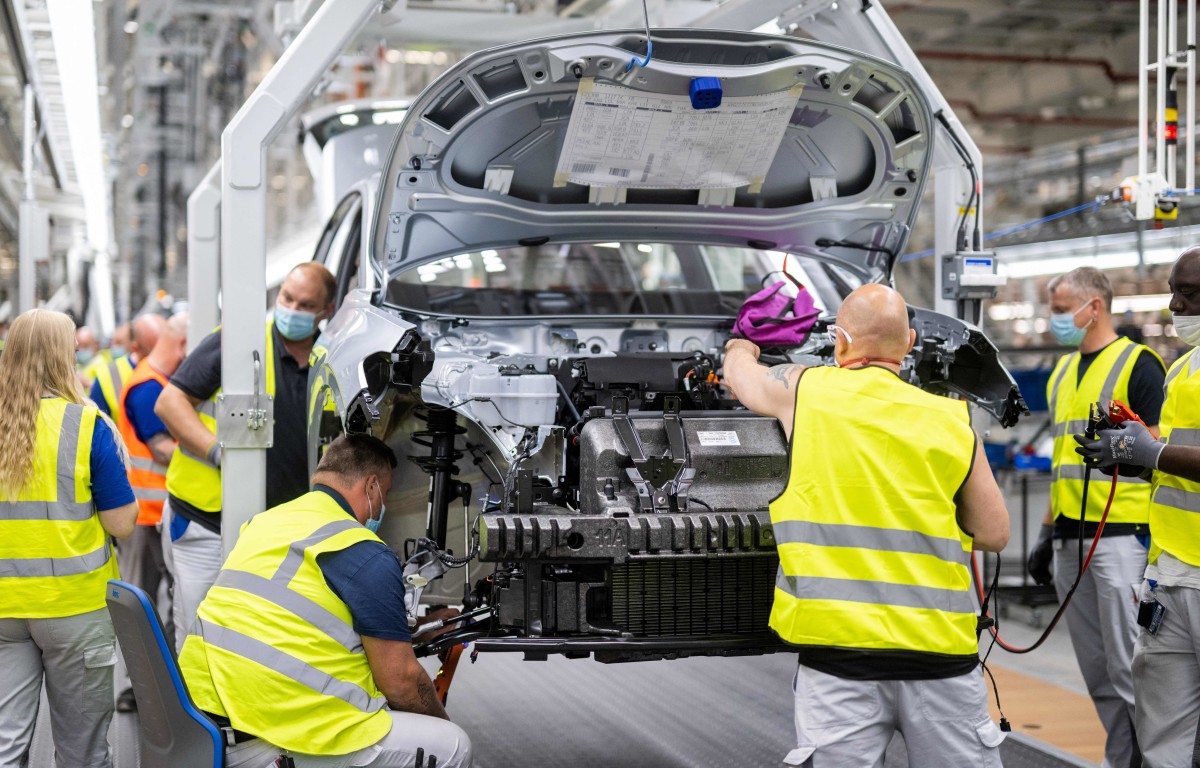
It's been a tumultuous few days at Volkswagen (VLKAF) -) as the German automaker confronts serious issues on both sides of the Atlantic.
On Dec. 7, the United Auto Workers said that more than 1,000 factory workers at Volkswagen AG's Chattanooga, Tenn. assembly plant have signed union authorization cards, according to Reuters.
DON'T MISS: AMD leaps after launching AI chip that could challenge Nvidia dominance
The UAW said it was launching a first-of-its-kind push to publicly organize the entire nonunion auto sector in the U.S. after winning record new contracts with the Detroit Three automakers.
Volkswagen had said earlier that it would increase the salaries of production workers on the lines of Volkswagen's Chattanooga, Tenn. plant.
Several other foreign automakers announced significant pay and other compensation improvements in response to the UAW contracts.
Analysts and industry officials saw the move as an effort to keep the UAW out of their plants.
Campaigns target nonunion companies
The Detroit-based UAW said workers at 13 nonunion automakers were announcing simultaneous campaigns across the country to join the union, including at such companies as Tesla (TSLA) -), Hyundai (HYMTF) -), and Rivian (RIVN) -).
These automakers employ nearly 150,000 workers at their U.S. assembly plants, about the same number as those employed by the Detroit Three companies.
The UAW has unsuccessfully sought to organize auto factories operated by foreign automakers for decades.
Meanwhile, over in Europe, Volkswagen will reportedly cut one-fifth of its administrative staff in a bid to save nearly $11 billion by 2026, Automotive News Europe reported, citing an internal memo.
The staffing cuts will happen via partial and early retirement as opposed to layoffs, the memo said.
The company had announced a plan in June that was intended to help meet a return-on-sales target of 6.5%, up from 3.6% last year.
Like other automakers, VW has been hit by inflation, slowing demand in Europe and China, and high labor and energy costs in Germany.
The automaker is also struggling to deliver a robust lineup of electric vehicles and contending with problems at is Cariad software unit.
'Need to operate with fewer people'
In October, TechCrunch reported that Cariad would delay the launch of its new software architecture as it planned to cut 2,000 jobs.
VW brand boss Thomas Schaefer has previously warned that high costs and low productivity are making its passenger cars uncompetitive.
“We will need to operate with fewer people in many areas at Volkswagen in the future,” Schaefer told employees at a meeting in Wolfsburg on Dec. 5. “This doesn't mean more work for fewer people, but rather shedding old habits and saying no to duplicating efforts and inefficiencies.”
Other initiatives include reducing product cycles to 3 years from 50 months, cutting overall production times, limiting model options and trims, and scrapping a planned new roughly $863 million R&D site in Wolfsburg.
Output at the main factory in Wolfsburg is still far below the historical average, according to works council head Daniela Cavallo.
"At the end of November, after 11 out of 12 months, we have produced 453,000 vehicles," Cavallo said.
Hopefully, Wolfsburg output will reach 500,000 units this year, she said, which is still far below the 780,000 annual average in the 2010-2020 period.
Cavallo said she was confident that workers and management would agree on the brand's cost-cutting measures by the end of December.
- Action Alerts PLUS offers expert portfolio guidance to help you make informed investing decisions. Sign up now.







